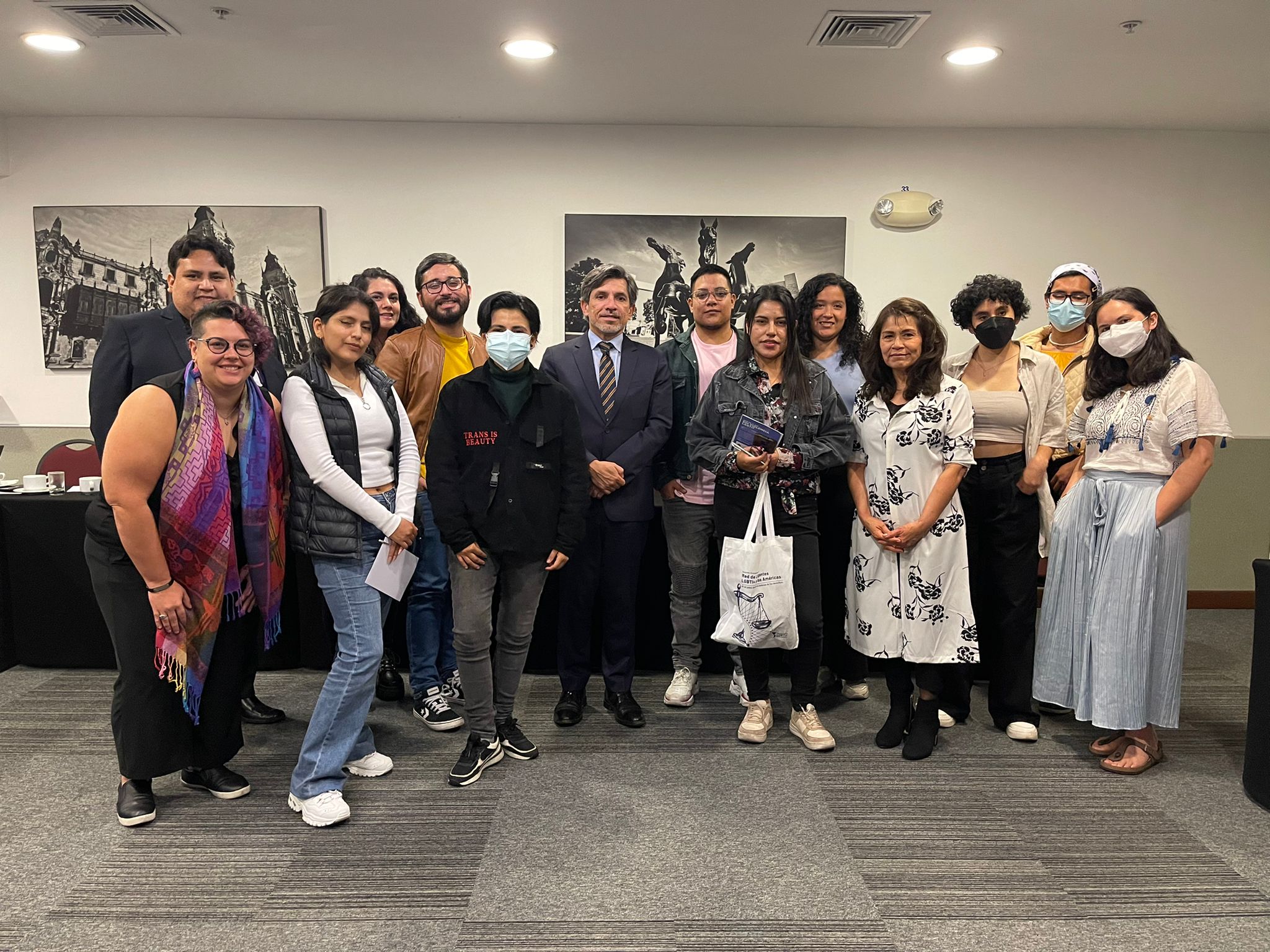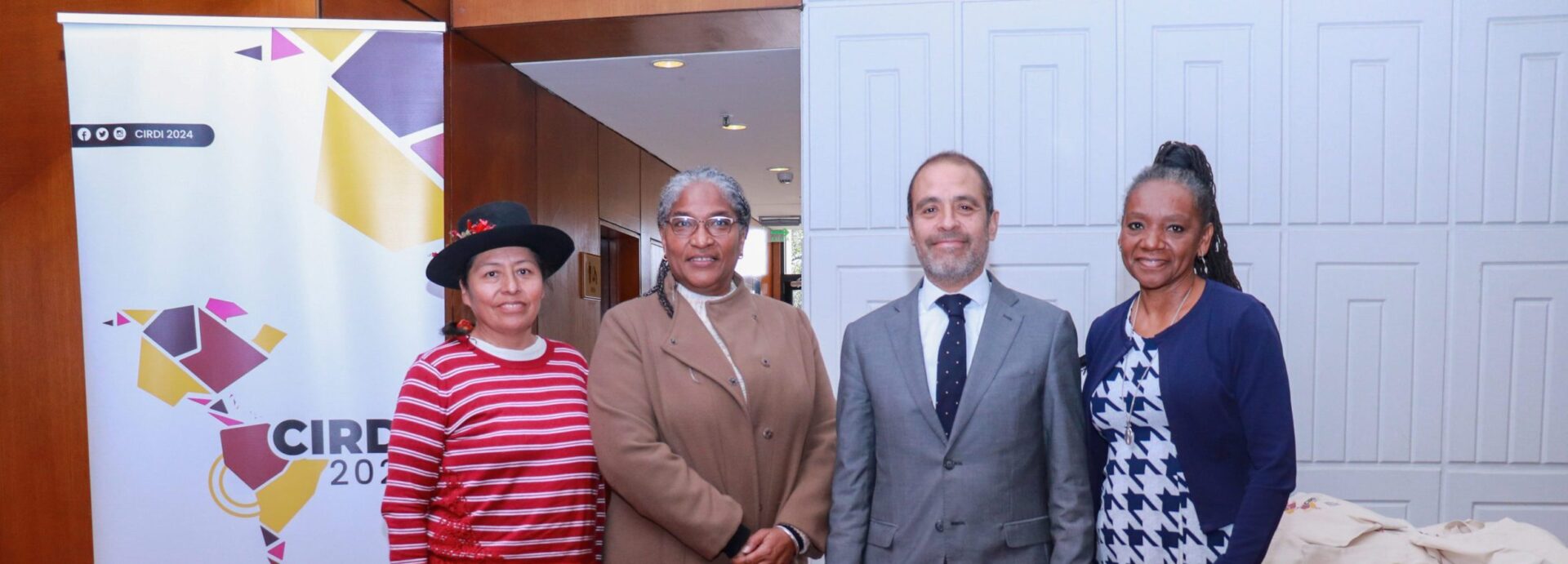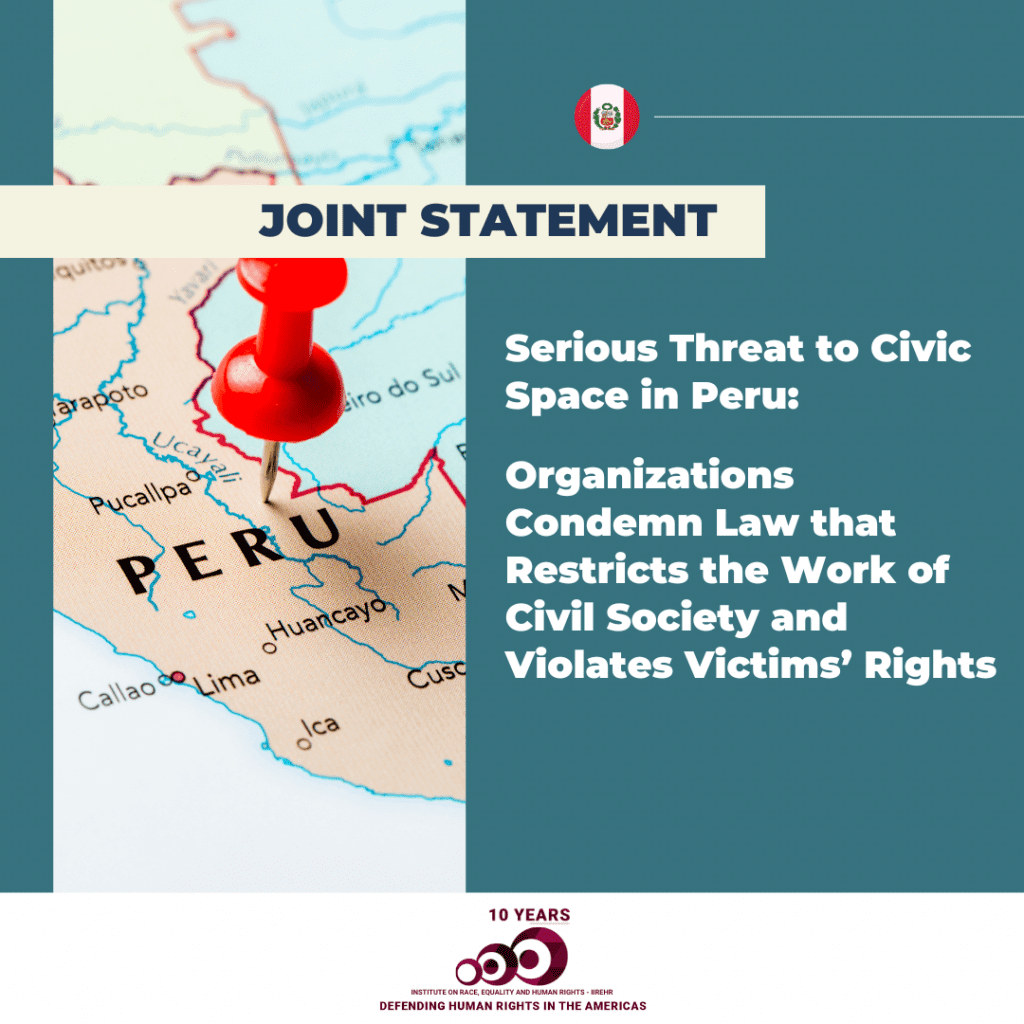According to official surveys, 8% of the population in Peru identifies as LGBTI – roughly more than 1,748,357 people. The cisheteronormative system that governs the country causes this sector of the population to be systematically discriminated against, pathologized and stigmatized due to their sexual orientation, gender expression or gender identity. Currently, the State does not have a registration system to generate official data or investigation protocols in cases of violence and discrimination against LGBTI+ persons; nor legislation on gender identity, equal marriage, diverse families and public policies with a differential approach.
In this sense, there is no comprehensive regulatory framework that contributes to reducing their level of vulnerability and effectively protects their fundamental rights to life, integrity, identity, health, work and education, among others.
Likewise, indigenous and Afro-Peruvian peoples continue to represent the poorest population in the country. According to the 2017 Population and Housing Census, about 26% of the total population self-identifies as part of an indigenous or native people; and approximately 4% of the population self-identifies as part of the Afro-Peruvian people. Racial discrimination in Peru is a constant and these populations are strongly discriminated against, especially in the fields of employment, justice and education.
Our work in Peru
Race and Equality provides technical assistance and supports Peruvian human rights organizations that work to promote the rights of LGBTI+ and Afro-descendant people, in order to advocate and influence the country’s public policies in favor of protecting these populations, as well as advocating before international human rights organizations.
We promote our partners’ participation in spaces for advocacy and regional debate, such as the OAS General Assembly, the Summit of the Americas and the Inter-American Human Rights System, where we mainly manage thematic hearings before the Inter-American Commission on Human Rights (IACHR) and precautionary measures for victims of human rights violations. Likewise, at the Universal Human Rights System of the United Nations (UN), we urge the participation of allies in spaces such as: the Committee that monitors the Convention on the Elimination of All Forms of Discrimination (CERD) and the Committee that monitors the Convention on the Elimination of All Forms of Racial Discrimination against Women (CEDAW)
We strengthen the capacities of Afro-descendant and LGBTI+ organizations to design and prepare reports and advocacy campaigns at the national level and in international spaces. We seek strategic alliances with organizations with extensive experience in the field of human rights, such as CEDEMUNEP (the Center for the Development of Black Peruvian Women)—an Afro-Peruvian organization that advocates for the rights of Afro-Peruvian women and fights against discrimination, exclusion and marginalization—and involve them in spaces for regional debate, such as the Inter-American Forum against Discrimination, an annual Race and Equality event.
Over the years, we have also supported visits by human rights experts to Peru, including the visit of Victor Madrigal, United Nations Independent Expert on Sexual Orientation and Gender Identity (SOGI).

Our Achievements
- Race and Equality collaborated with the Afro-Peruvian organization CEDEMUNEP and with government entities to promote the development of the census survey that includes a self-recognition question. This process took several years, beginning in 2015 with consultations held with ethnic peoples, radio campaigns and public events to disseminate its importance, and culminated with the implementation of the survey in 2017.
- Through capacity building, we joined the “Tengo Dos Mamás” campaign to accompany Jenny and Darling, a couple of lesbian wives, who fight for the recognition of their son’s rights and them as mothers and lesbians. In Peru, there are more than 175,000 diverse families who cannot enroll their children in the National Registry of Identification and Civil Status (Reniec) with the surnames of two moms or two dads, even though the Constitution of Peru obliges the State to recognize marriages contracted abroad.
- In 2022, through the organization Fraternidad Trans Masculina Perú, Race and Equality supported in processing 16 cases of name change of trans people in a state of vulnerability at no charge. This is because the Reniec does not have administrative processes for changing names and sex categories, so trans people must initiate a judicial process, which results in a costly, bureaucratic and revictimizing process.
- Race and Equality provided technical assistance in the drafting of the report “Bodies and resistances that TRANSgrenden the Pandemic: transmasculinities and people of non-binary gender AMAN in Peru”, which was carried out by a team of trans researchers from transmasculine and non-binary organizations in the country. The report was fueled by the lack of information and research on transmasculine and non-binary people assigned women at birth in Peru, their problems and the violence that this population goes through. The report seeks to contribute to the beginning of conversations both within the movement and in the State to achieve specific public policies that address the effects presented in the report.



